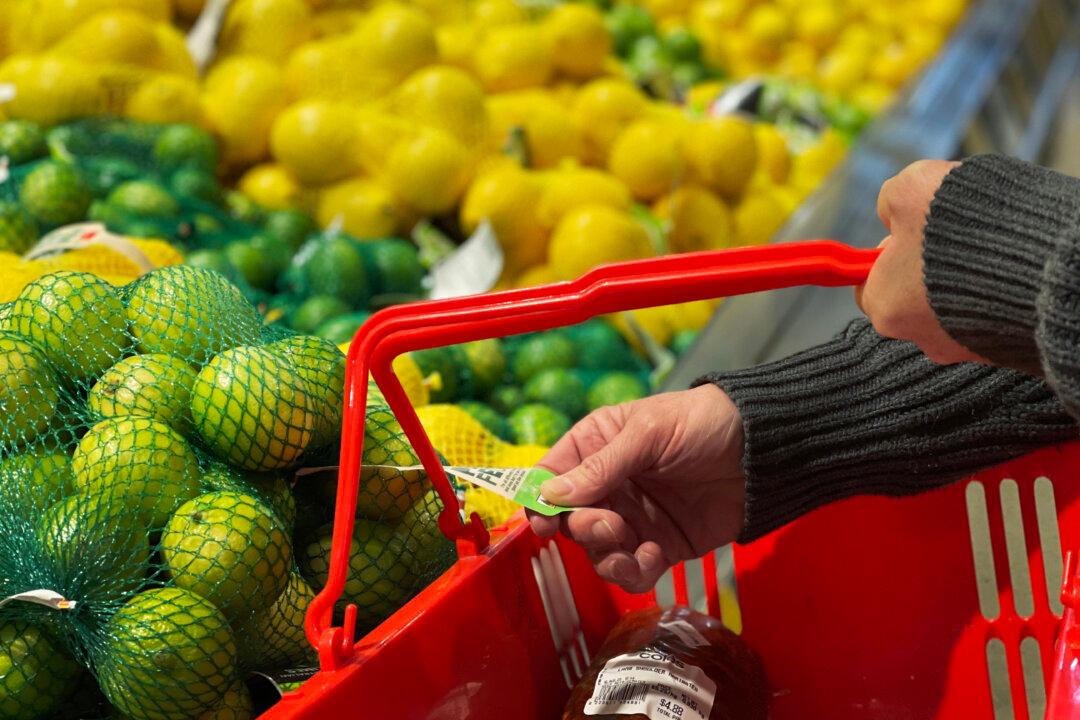Education stakeholders in Australia have warned a Senate Committee looking into the effect of high inflation on consumers, that schoolchildren may go without lunches as parents struggle to cope with increased financial burdens brought on by the cost of living crisis.
Parents Struggling to Pay for School Lunches, Equipment: Charity
Nearly half of those surveyed felt concerned over being able to afford new uniforms and school shoes.

A customer looks at the price of limes at a fruit stand in the central business district in Sydney, Australia, on Aug. 16, 2022. Lisa Maree Williams/Getty Images




